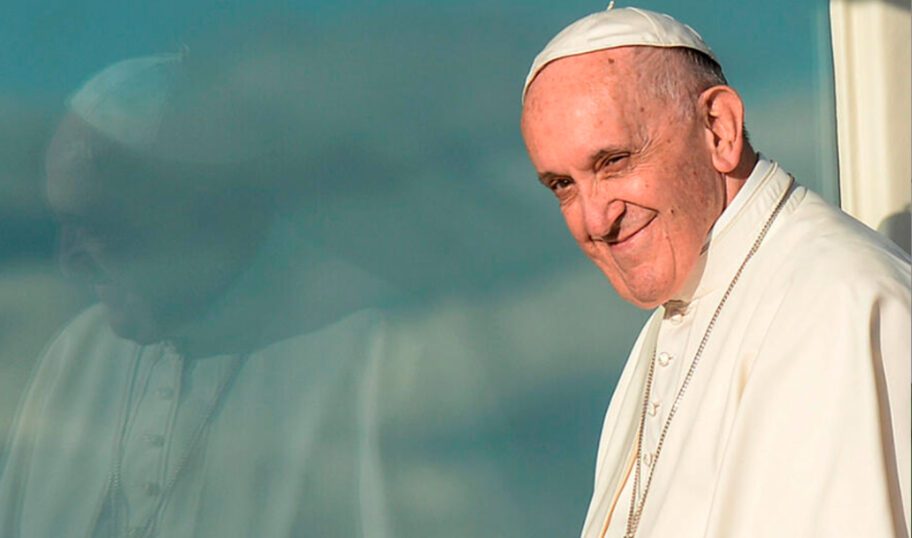I am an Episcopal priest, which means that my kids are “PKs.” In Protestant culture, a PK is a “preacher’s kid,” but “priest’s kid” also works. And the thing about PKs is that usually they chafe against the role their clergy parents have. So although I was sad about it, it came as little surprise that sometime in middle school my son declared he was an atheist. Although for a while my wife and I could coax him to the occasional church service or youth group event, he was adamant that he was not a Christian.
But when he turned fourteen and was allowed to access social media (with parental controls!), the first account he followed on Instagram was @franciscus—Pope Francis. My son’s decision to follow the pope reflected an impulse many had toward Francis. He had a sort of magnetism that drew people to him, even non-Catholics, even those who avowedly had no faith at all.
The attraction that Pope Francis held for non-Catholics reflects something of what the great twentieth-century Lutheran scholar, and pioneer of interreligious relations, Krister Stendahl called “holy envy.” This is the feeling when one is drawn to something in another tradition. While one might have no desire to join that tradition, there are certain things in it that one appreciates so much that one desires to have it accessible in their home tradition.
I have always been Protestant. Not having a pope is part of the deal. But I have always had a serious case of holy envy when it comes to popes. This is probably because I was raised “Catholic-adjacent.” You can probably tell from my funny last name that I am half-Polish. I came of age in the 1980s, when Pope John Paul II exercised an electric hold over the popular imagination. In the home of my Polish grandparents, he was practically a living saint. I can still see the picture of him tucked into the corner of the framed image of the Black Madonna, Our Lady of Czestochowa, hanging by the dining room table in their house in Waterbury, Connecticut.
I admired the ways in which John Paul, and later Francis, could captivate the world with their moral imagination. Even though I could not come to terms with all aspects of the papacy, I felt pangs of holy envy whenever Francis moved the world by his example and teaching, from the early days of his papacy and his symbolic embrace of modesty and humility, to the watershed papal encyclical on the environment, Laudato Si’, to his efforts to have his church grapple with what it meant to be open to all people.
I know that their encounter with Francis that evening inspired them to be a little more committed to their own ministry, a little more giving of themselves in service to others.
My holy envy was stoked even further in January 2016. I was teaching in an Episcopal Church seminary, and I had taken a group of students to Rome. We connected with the Anglican presence in Rome while also engaging deeply with Catholicism there.
We were there during the Week of Christian Unity, an annual ecumenical commemoration across the Catholic, Protestant, and Orthodox worlds. We gathered with hundreds of others for a service of papal vespers at St. Paul’s Basilica, with Pope Francis presiding. When Francis entered, the congregation was electrified. Two of my students, who had been raised as Protestant fundamentalists, were especially moved to be in the presence of the pope. They are both leading thriving Episcopal parishes now. I know that their encounter with Francis that evening inspired them to be a little more committed to their own ministry, a little more giving of themselves in service to others.
Such movement to deeper commitment to your own tradition is one of the blessings of holy envy. It inspires us to be the best that our own religions can offer. I am not Catholic, and Francis was not my pope. But he still mattered greatly to me. And I hope the next one does, too. In a funny way, popes help me be a better Episcopal priest.
But there is something even more mysterious about holy envy. It can be a kind of grace. It can not only inspire us to be the best Protestant, or Jew, or Buddhist. It can also do a mysterious kind of work that uncovers deeper yearnings that we perhaps do not yet have words for. I have seen that sort of grace. Just ask my son, who is about to get confirmed. That atheist has become a young man who now wholeheartedly embraces Christianity. He wants to make it his own—on his own terms, not his parents’. And I think a little holy envy helped that happen. Thanks, Pope Francis, for being on Instagram.

